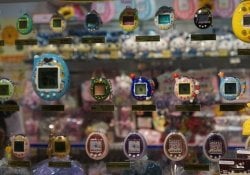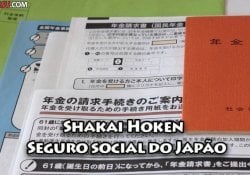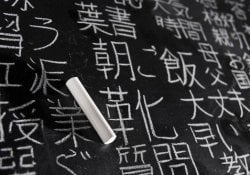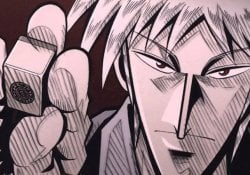In this article we will see how to end common phrases or sentences using particles. There are many particles that can be used at the end of sentences, these final particles are called 終助詞 – Shūjoshi. Let's go to the examples:
か - Interrogative
I think most here know the particle "ka- か” that replaces the question mark and asks a question, so let’s look at some examples:
| あの人は誰ですか | あ の ひ と は だ れ で す か? | Who's that man? (that person?) |
| 田中さんは先生ですか | た な か さ ん は せ ん せ い で す か? | Is Mr. Tanaka a teacher? |
| だ れ か | somebody |
| ど こ か | somewhere |
の - Emphatic and interrogative
Indicates a confident conclusion, an emotional emphasis. It can be used as an explanatory particle, most often by women. It is also used to emphasize questions.
| い い の? | It's all right? |
| ど こ に 行 く の? | Where are we going? |
ね - emphasis and confirmation
Indicates emphasis, agreement, request for confirmation, etc. Well like the Brazilian,. Many times interpreted with a comprehensive idea of "It's not like that," "you don't think so" or "you don't agree with me" is also used as a polished or friendly ending. Some people end up ending most sentences with "ね".
| そ れ は む ず か し い ね. | It's difficult, isn't it? |
| そ れ は む ず か し い ね. | Difficult right? |
| た な か さ ん は す ご い ひ と だ ね... | Mr. Tanaka is a good guy... |
It also works as a “phrase softener”, that is, it makes the sentence softer. Stretching the syllable makes it more emphatic. neee?
| き れ い だ ね ~ ↓ | It's so beautiful! |
The article is still halfway through, but we recommend also reading:
よ -emphasis
- Indicates certainty, emphasis, contempt, request, etc.;
- After a noun is used when calling someone;
- Half a sentence is used to catch your breath or get someone’s attention, (interjection) yo!
- Used to emphasize new information, or as an exclamation point;
- Used also to show conviction;
| わ か る よ | I understand. | |
| あの映画はすごく良かったよ | あのえいがはすごくよかったよ | That movie was really good |
| 彼は煙草を吸わないよ。 | かれはタバコをすわないよ | You already know he doesn't smoke. |
ぞ - Emphasis
Similar to よ but more masculine.
| い く ぞ | Vou. |
な - Opinion
Informal, indicates emotion or emphasis on opinion. Men prefer to use "な" instead of "ね".
| た な か は ば か だ な... | Tanaka is a fool... | |
| さ む い な あ | It's so cold. | |
| それは間違っていると思うな | それはまちがっているおもうな | I think this is wrong. |
な - prohibition
な can also indicate a ban when placed after verbs. Directly this can sound rude.
| い く な! | Do not go! |
| み る な! | Do not look! |
かな, かしら - Uncertainty
Used to say that you are uncertain about something, or don't know if you are sure about something.かしら is mostly used by women.
You are asking a question when using the particle "か" and at the same time leaving your opinion uncertain using "な".
| ど こ に あ る の か な | I wonder, where is it? | |
| 今日は雨が降るかな | きょうはあめがふるかな | (Will it) rain today? |
| いい大学に行けるかな | いいだいがくにゆけるかな | (Can I) go to a good university? |
ぜ - Agreement
It adds strength, indicates command, expresses agreement, used only by men in conversations.
わ - Agreement
Indicates emotion or admiration, similar to よ but softer, it is used a lot by women. (note: also used by men in Kansai dialect).
| あ し た 行 く わ. | あしたいくわ | I will go tomorrow. |
こと - Indicates command
- Particle indicates a command
- Partícula indicates a gentle enthusiasm (feminine language, often) Koto ne)
- Indicates a mild interrogative sentence
- Used to soften a judgment or conclusion (at the end of the sentence as Koto ne);
- At the end of a period to indicate emotion, used by women;
- At the end of a sentence to express a suggestion or invitation, used by women
- The "か" is used to indicate a strong emotion, such as an exclamation;
| 彼が帰って来るのを何年待ったことか | かれがかえってくるのをなんねんまったことか | Wow! I waited how many years for his return !! |
さ - Emphasis
さ it's basically a very casual way of よ. Used to emphasize the sentence (unlike よ, no command or new information is communicated):
| あ の さ | Hey |
| この間さ (このあいださ) | In this period... |







